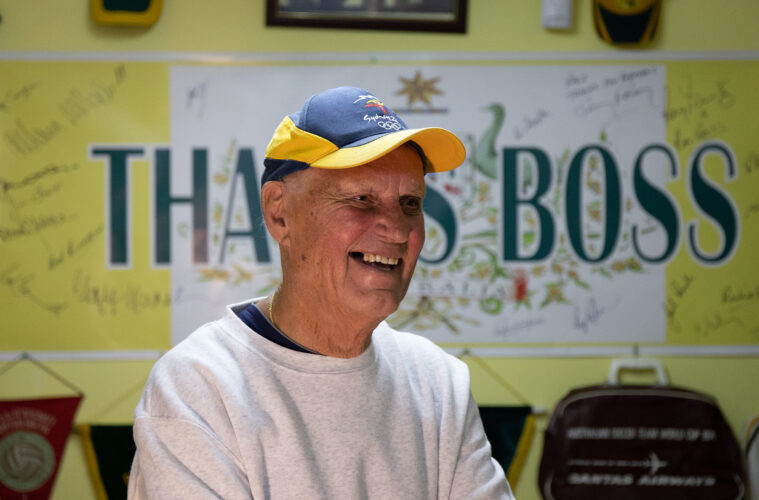Legendary Socceroos striker Adrian Alston has remembered Rale Rasic as a ‘special man’ who fostered a familial bond among the group he took to the 1974 World Cup, that endured just as long as their achievements as young men.
Rasic passed away aged 87 on June 8, having given his life to Australia and propelling its football to previously unseen heights. A Yugoslavian migrant, he became manager of the Socceroos aged 34 in 1970 and was an inductee into the Australian Sports Hall of Fame in 1989, off the back of leading the side to the West German World Cup fifteen years prior.
‘To take us where he did, the biggest stage in the world, he got us all together and really created a group. It took us about three years to qualify through the various stages, and he led us admirably. He was a special man’, 39-time Socceroo Alston told Box2Box.
‘Even to this day, just before he died, he was still ringing the players up and asking how they were. We’re talking about someone with an age of 87, 88 approaching – just a phenomenal person. He was just like family, he tried to look after us all.’
Rasic’s first year in the job saw the Socceroos undertake their 1970 ‘World Tour’; sixteen matches (thirteen of these ‘B-Internationals’) against sides ranging from national superpowers Greece and Mexico, through to the Kowloon Bus Company, Persepolis Tehran and Luton Town.
The Aussies lost only to Mexico, Manchester City B and a representative side from the League of Ireland. Their tracks through Hong Kong, Iran, Israel and Europe may have looked eclectic, if a little random, but were later justified as a shrewd piece of managerial foresight from the man in charge.
‘This was the first stage of his plan. He took us to different countries as when we played World Cup qualifying matches, we didn’t know who we were gonna play against. We had to go through four different groups: Australasia, Arabic countries, the Middle East, right through Asia; and then play the top team from each.
‘Now, there are four qualifiers plus an extra playoff position [in the AFC]. In our day there was only one qualifier, so he started us on the World Tour to learn. We were away thirteen weeks and every single thing, be it breakfast, dinner, there wasn’t a minute you were left alone. It was all about the team, the team, building all the time.’
Alston acknowledged Rasic would have seen challenges in holding authority at such a young age. It may also have been a factor that saw he and his side underestimated when they reached the World Cup, as one of just sixteen qualified sides, placed in a group with the hosts, West Germany and Chile.
‘He was the youngest boss at the World Cup of all of them and the reviews he got… everyone was speaking about us. It was such a shock, especially for East Germany, the eventual winners of the tournament; they really didn’t expect us to defend like we did and work so hard.
‘People wrote us off before we got there, so to then draw against Chile, ranked No.6 in the world at the time, was a phenomenal job. He was a wonderful leader, he had everything about him. He was the best coach I played under, in all my years of playing, anywhere.’
Rasic was controversially dismissed following the campaign, but went on to stints at many of the proudest clubs in the country, including leading APIA Leichhardt to the NSL title in 1987. In his later years, he described his induction into his adopted country’s Sports Hall of Fame as something he was ‘more proud of than anything else.’
‘Rale would say: ‘we can find plenty of decent players, but you have to be a certain kind of person to be in my team. It’s fifty years ago this year, November 13th, since we qualified, and he was still ringing all his players, just to see if all was well!’
‘I’ve spoken to numerous players, we’re all absolutely shattered. If he’s not remembered as he should be, as one of the all time greats, then there’s something really amiss in Australian football.’

